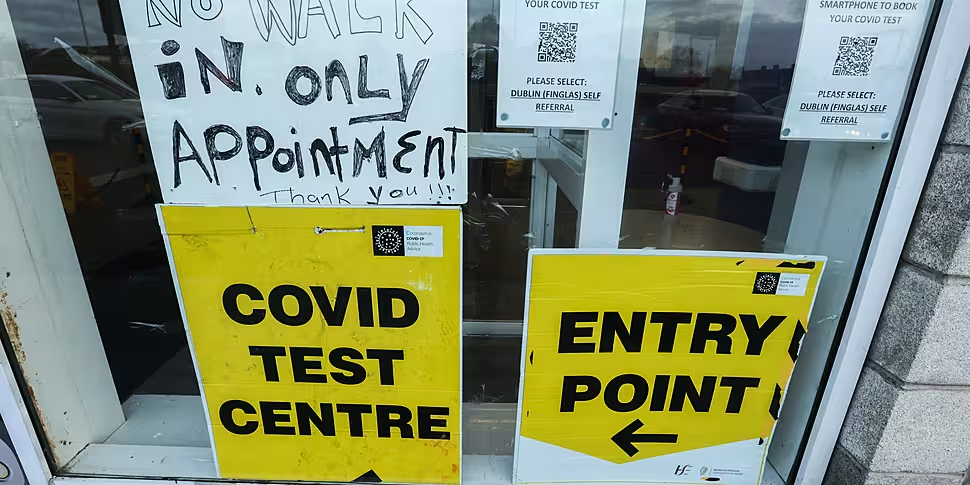The level of COVID-19 in the community is probably 'at least treble' the daily numbers being reported, an immunologist has suggested.
Professor Kingston Mills says the level of Omicron infection has been "truly staggering" - but says a mix of immunity from infection and vaccines means Ireland is likely now in a good place.
The five-day moving average of new COVID-19 cases has remained above 20,000 in recent days.
Yesterday's figures mean there's now been over one million confirmed infections in Ireland since the pandemic began.
Professor Mills - professor of experimental immunology at Trinity College - told The Pat Kenny Show the true number is likely much higher.
He observed: "The numbers we hear every day from the HSE are probably a fraction of the real number.
“You can probably at least treble the daily numbers to get the real number.
“It’s probably a million people infected - probably more - with Omicron alone.
"The figure of one million is a vast underestimate - I’d say it’s probably close to two million between all the variants, especially Omicron."
Despite those startling figures, Professor Mills says the good news is that the evidence to date suggests people who've been infected with Omicron will be well protected against future reinfection.
He said: "It’s likely that people who’ve had two doses of vaccine and then had Omicron that they do have good immunity against Omicron in the future.
“Unless the virus varies again - which is a distinct possibility - we should be in a good place in terms of having a good level of immunity in the country.”
He also noted that a booster vaccine dose also offers strong protection against symptomatic disease, even from Omicron.
The Government's expected to soon consider easing the restrictions around fully vaccinated close contacts.
Professor Mills said there's a "strong case" to be made for using antigen testing to allow boosted close contacts without symptoms back to work.
He said: “The antigen testing on top of booster vaccines is a very good combination, in terms of picking up people who are infectious.”









